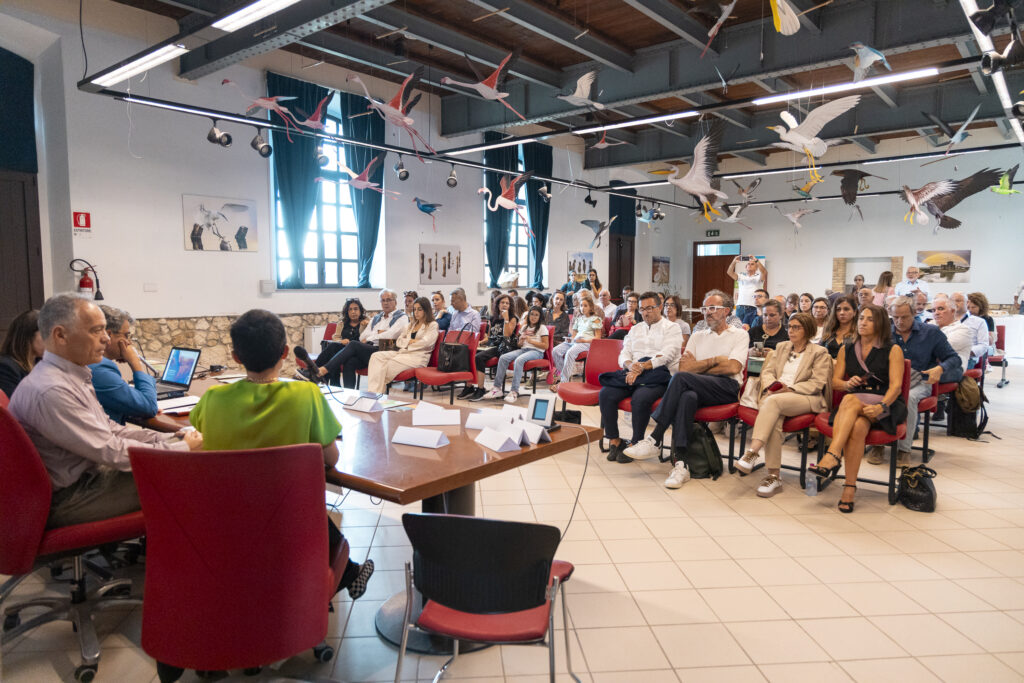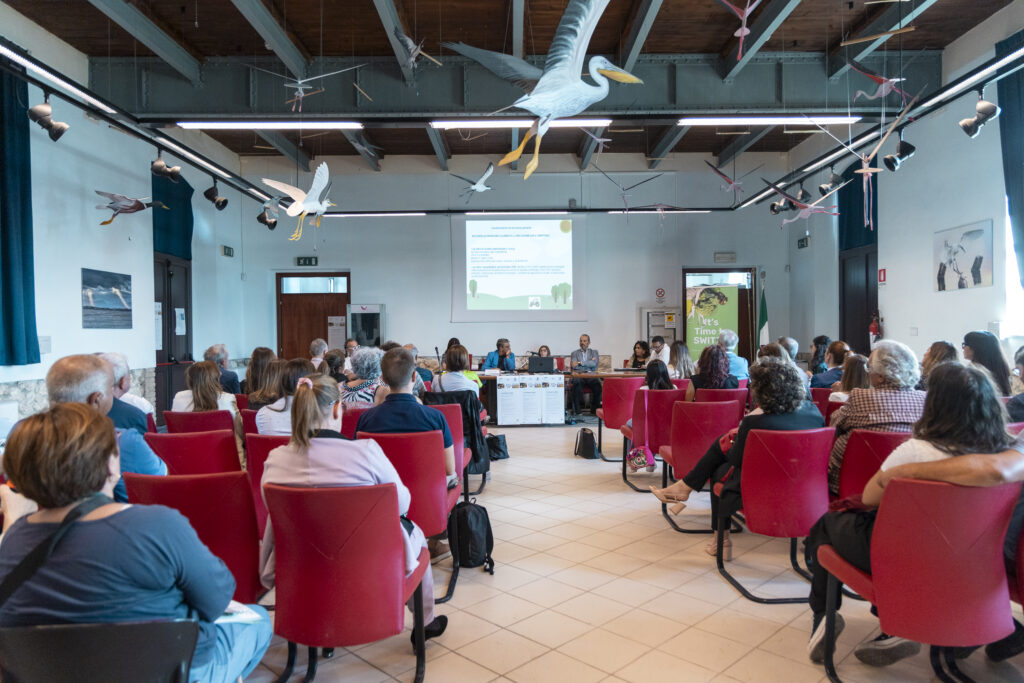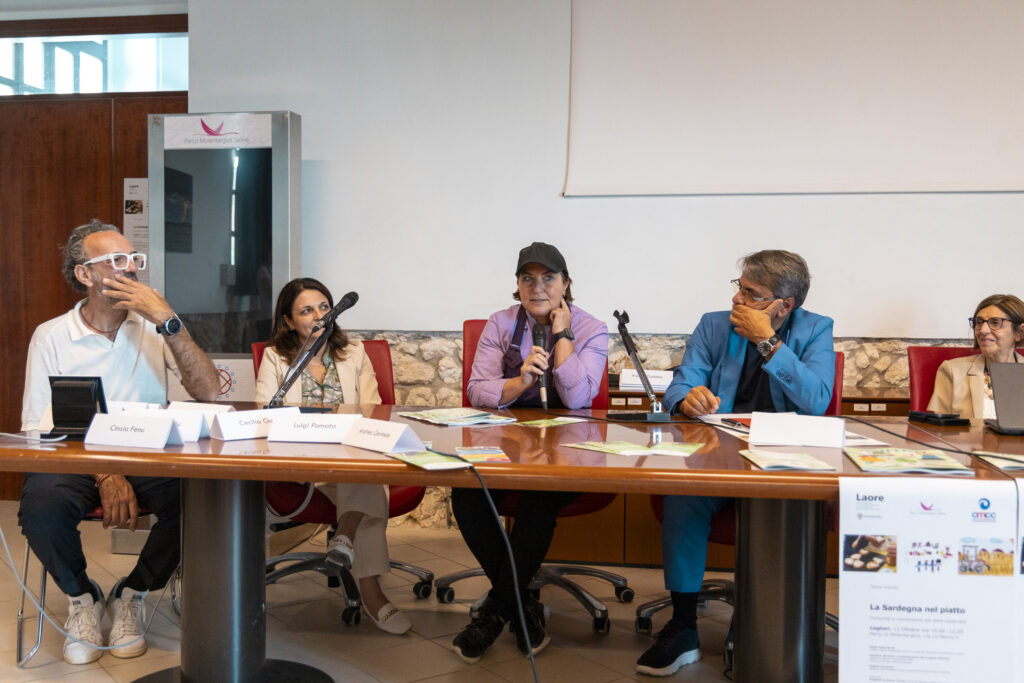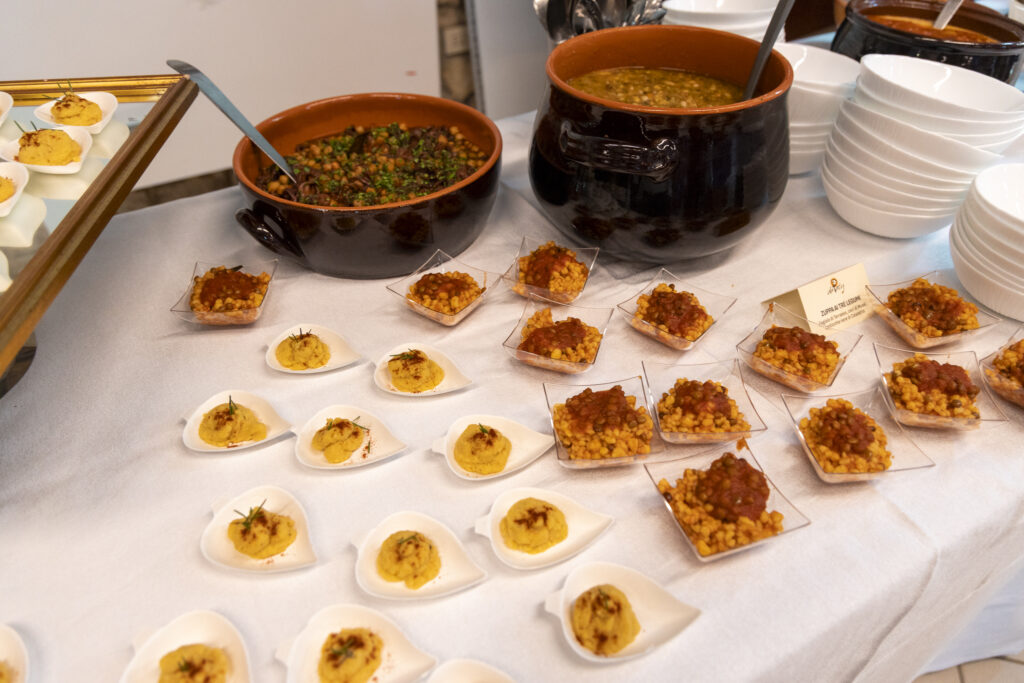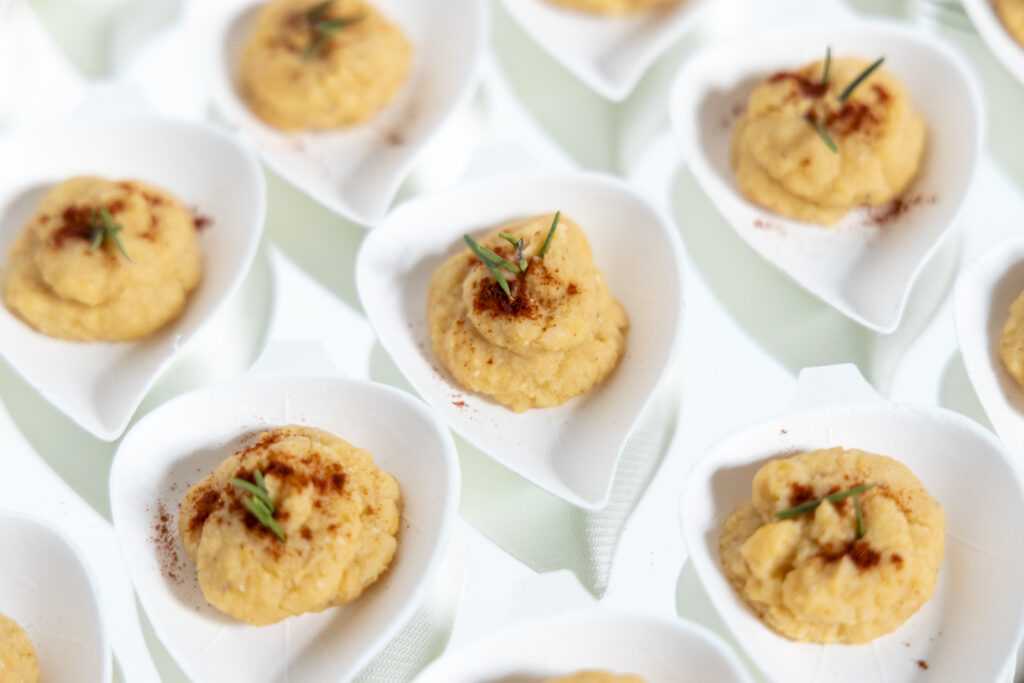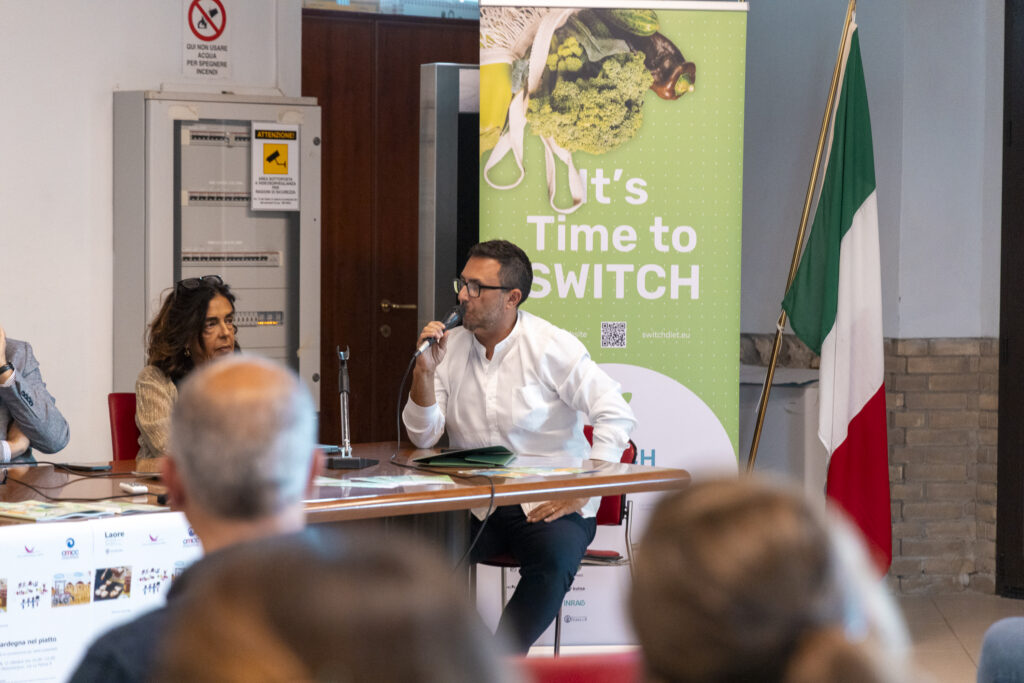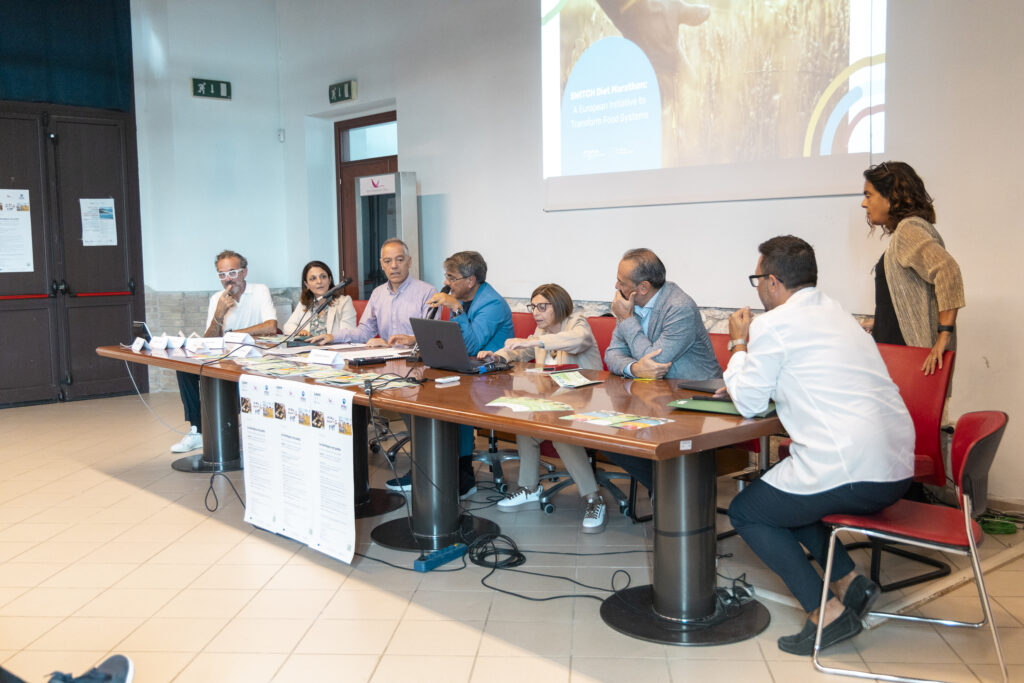On October 11th, Cagliari – The Sardinian stop of the SWITCH Marathon took place in the heart of the Molentargius–Saline Regional Park in Cagliari. The event, titled “La Sardegna nel piatto – Communities in connection for sustainable diets,” was organised by Laore Sardegna Agency and the CMCC Foundation – Euro-Mediterranean Center on Climate Change, with the support of the Park itself.
The gathering brought together schools, local authorities, farmers, chefs, and civil society to foster dialogue on how food can serve as a catalyst for cultural and environmental transformation.
Building bridges through food
The event opened with the introduction of the SWITCH project by Andrea Cerimele (Laore Sardegna) and Valentina Mereu (CMCC Foundation). Moderated by Roberto Pili, President of the World Longevity Community, the morning set the tone for a day dedicated to collaboration, local knowledge, and shared responsibility.
Speakers included representatives from municipalities, schools, healthcare agencies, and local businesses who showcased projects connecting sustainable diets and education:
– Andrea Cerimele introduced “La Buona Tavola” by the Union of Alta Gallura Municipalities.
– Cecilia Guaita from ASL Sulcis Iglesiente presented the “spoken menu” initiative.
– Adriana Trudu (Istituto Azuni, Pula) spoke about the menu as a tool for territorial identity.
– Cinzia Fenu, school principal, shared insights from the project “More Lentils on the Plate.”
– Luisanna Massa presented “Seminiamo il futuro.”
– Pablo Belfiori from Lo Specchio di DAN reflected on the relationship between food and adolescence.
– Andrea Luxoro, representing the Community for the Protection of Agrobiodiversity and Food of South-Western Sardinia, highlighted the importance of preserving local varieties and collective stewardship of biodiversity.
During his speech, Andrea Cerimele emphasised the vital role that Laore Sardegna plays in grounding the SWITCH project in the local territory:
“The Laore Agency, starting from the SWITCH project, has been the link between the territory, producers, local operators within the food hub, and research institutions. Through the implementation of five key actions, we have gathered valuable data and insights that were then transmitted to the research components, who used this information to drive the project’s results.”
Chef Luigi Pomata from Carloforte offered a passionate reflection on the link between cuisine, education, and community:
“These projects are essential to bring children closer to local productions. There’s no future if we don’t raise them with an awareness of territory and good nutrition. Food is our identity — we are what we eat.”
Food education in action
Franca Caddeu, manager of the school catering company Da Taty, has been integrating healthy and sustainable menus in Sardinian schools for over twenty years.
Her collaboration with Laore and SWITCH focused on rediscovering local biodiversity through recipes featuring traditional legumes such as black lentils from Calasetta, chickpeas from Musei, and beans from Terraseo.
“We are reviving the legumes of our grandparents,” she explained. “Through these recipes, we teach children to appreciate what our land can offer and reconnect them with seasonal, local food.”
Communities in motion
For Valentina Mereu, the real success of the event was the spirit of participation:
“We are glad by the diversity of people who joined — from policymakers to farmers, school canteen managers, chefs, and educators. Everyone wanted to share experiences and build networks to transform our communities towards more sustainable and healthy lifestyles.”
She also highlighted the broader mission of SWITCH:
“Our food systems are under increasing pressure from climate change and at the same time they significantly contribute to it. We must take urgent action to transform them into systems that are more sustainable not only environmentally, but also economically, and socially.”
From local stories to European collaboration
As part of the broader SWITCH Marathon, which spans six European and Mediterranean hubs, the Cagliari event demonstrated how local traditions and community efforts can inspire systemic transformation.
By combining Sardinia’s rich agro-biodiversity, intergenerational knowledge, and strong sense of community, the day became a living example of how local actions can contribute to the global movement for regenerative and inclusive food systems.
